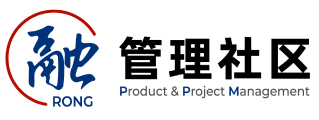Blasphemy! They Call It Scrum!
 703 2023-08-25
703 2023-08-25
我们非常重视原创文章,为尊重知识产权并避免潜在的版权问题,我们在此提供文章的摘要供您初步了解。如果您想要查阅更为详尽的内容,访问作者的公众号页面获取完整文章。
Introduction to ScrumBut
When Scrum is implemented imperfectly, with deviations from its essential elements, the resulting practice is termed "ScrumBut." Examples include not holding daily Scrums or skipping retrospectives. ScrumBut is seen as negative because it involves avoidance of problems instead of addressing them.
Advice for Scrum Novices
For those new to Scrum, the recommendation is to adhere strictly to the guidelines provided by the Scrum Guide or the Core Scrum statement. Deviations often result from a misunderstanding of Scrum rather than a flaw in Scrum itself. Novices should trust the established guides and seek experienced advice when in doubt.
Inspecting and Adapting Essential Scrum Elements
Scrum encourages "inspect and adapt" through two main processes: the Sprint Retrospective and the Sprint Review. Making changes based on these inspections is expected. However, novices are advised against altering essential elements of Scrum as they lack the experience to understand the implications fully.
Shu Ha Ri: Stages of Mastery
The Shuhari model outlines three stages of learning: Shu (follow rules), Ha (break rules), and Ri (transcend rules). Scrum and Core Scrum guides are meant for the Shu stage. The dilemma arises when practitioners at the Ha stage innovate by altering Scrum's essential elements, which can lead to the question of whether it can still be called Scrum.
Good Versus Bad Deviations
Distinguishing between beneficial and detrimental deviations is crucial. A good deviation maintains the intentions of the original Scrum elements, while a bad deviation neglects them. Historical changes to Scrum, such as the shift from a prioritized to an ordered product backlog, exemplify positive adaptations.
The Importance of Names in Scrum
Names are critical for communication among multiple Scrum teams, enabling learning and collaboration. While Scrum's definition should be precise, excluding innovators can hinder Scrum's evolution. Therefore, it is vital to embrace innovations while being mindful of the natural border when alterations become so significant that a new methodology emerges.
Conclusion
The acceptability of calling a practice Scrum after changing an essential element depends on the practitioner's stage of mastery. For novices (Shu), strict adherence to Scrum's rules is necessary, while experts (Ha) may still be practicing Scrum even after making informed changes to its core elements.
想要了解更多内容?


白皮书上线








